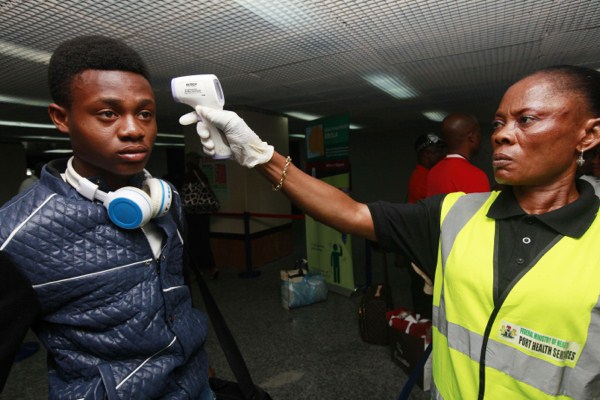On Oct. 20, the World Health Organization declared Nigeria “free of Ebola transmission,” meaning that 42 days had elapsed since the last new case developed. Nigeria’s Ebola outbreak began in July, when an infected Liberian diplomat arrived in Lagos, Nigeria’s largest city. The outbreak included 19 cases, of which seven proved fatal (other sources give the numbers as 20 cases and eight deaths).
The international news media, accustomed to portraying Nigeria negatively, has rushed to publish story after story lauding Nigeria’s efforts against Ebola and explaining how Nigeria stopped the outbreak. Nigeria’s plaudits on Ebola are deserved, but the halt of this outbreak calls attention to the primarily defensive, rather than offensive, Nigerian response to the Ebola crisis in West Africa. Nigeria’s actions at home and relative inaction abroad on Ebola reflect the broader pattern of receding Nigerian leadership in West African affairs as compared with the 1990s and the 2000s, when Nigeria appeared to be actively cultivating, rather than passively consuming, regional leadership.
Within Nigeria, several things went right during the outbreak that could easily have gone wrong. Nigeria benefited from luck, identifying patient zero and his illness at a very early moment and isolating him in a private clinic. Health authorities were thorough in tracing and monitoring contacts, and they effectively communicated with the public. Nigeria also benefited from extraordinary individual efforts, especially those of Dr. Stella Adadevoh, a doctor at First Consultant Hospital in Lagos, who insisted on patient zero’s isolation but ultimately caught the virus and died herself. Finally, Nigeria’s success involved teamwork between members of different parties: President Goodluck Jonathan and other leaders in the ruling People’s Democratic Party, and two prominent governors—Babatunde Fashola of Lagos and Rotimi Amaechi of Rivers—from the opposition All Progressives Congress. Such cooperation marks a rare deviation from the partisan divide in the lead-up to the February 2015 national and state elections.

